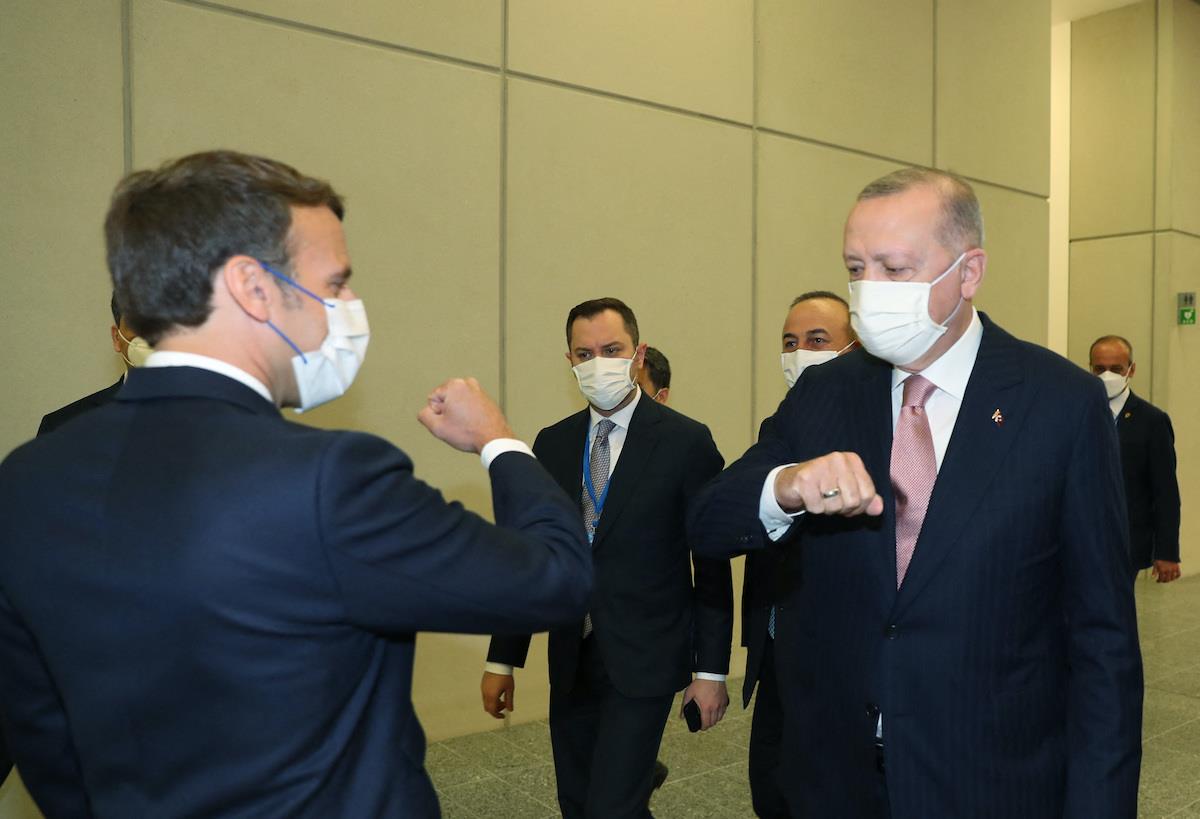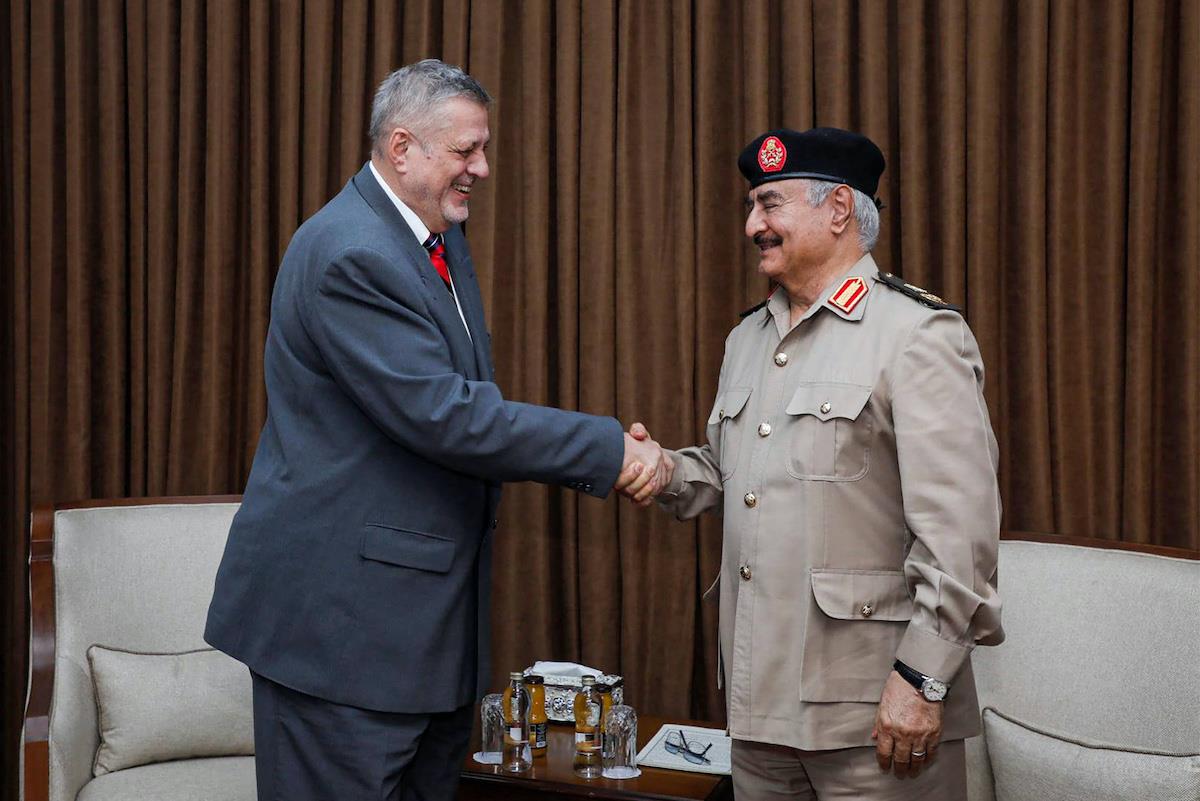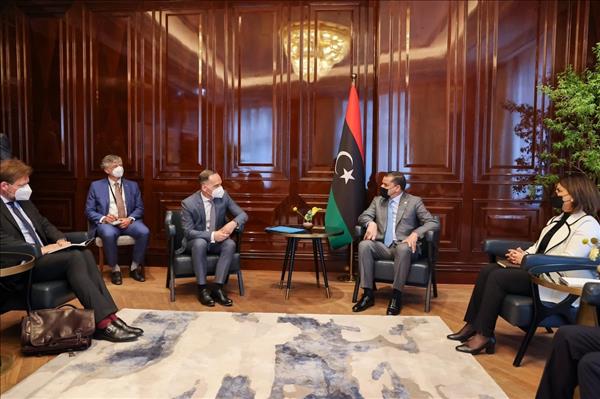
Libya peace conference hopes and General Haftar
(MENAFN- Asia Times) International powers and Libya's interim government gather in Berlin on Wednesday, aiming to take the country's blossoming peace process to the next stage.
Yet, as ministers and UN envoys sit down in the German capital, on the ground in Libya, some major challenges to that process remain.
Recent days have seen forces loyal to General Khalifa Haftar, who commands the eastern-based Libyan National Army (LNA), surround key oil and gas fields in southern Libya, sealing the nearby Algerian border.
Meanwhile, little progress has been made on moves towards unifying the country's political institutions, while rival militias – and foreign fighters – continue to control much of the country.
Removing the latter is one of the key objectives of the Berlin conference.
Turkish troops and pro-Turkish Syrian mercenaries stand behind the Tripoli-based, internationally recognized Government of National Accord (GNA), while Russian and UAE-backed mercenaries form the core of Haftar's LNA.
Yet, ''without more meat being put on the bones of how to sequence the withdrawal of foreign fighters,'' says Anas El Gomati, Director of the Sadeq Institute, a public policy think tank in Libya, ''there is absolutely no way of avoiding another conflict.''
Indeed, the worry for many is that if the conference fails to set out a clear and binding roadmap for the next steps – including preparations for nationwide elections, scheduled for December – much current progress may be lost.
''Unless the whole process keeps moving forward,'' Claudia Gazzini, the International Crisis Group's Senior Libya Analyst, told Asia Times, ''there is a real risk of renewed escalation.''

Fighters from the Libyan Government of National Accord, or GNA, stand guard on June 20, 2021, in the town of Buwairat al-Hassoun during a ceremony to mark the reopening of a 300-kilometer road between the cities of Misrata and Sirte. Photo: AFP / Mahmud Turkia Berlin 1 to Berlin 2
Wednesday's conference is the second time the German capital has played host to international efforts on Libya.
The first time was back in January 2020, when the LNA and GNA were engaged in bitter fighting.
This had begun in April 2019, with an LNA offensive against the GNA capital, Tripoli.
Disturbingly, in the light of Haftar's recent moves on Libya's southern oil fields, this offensive began on the eve of another UN-sponsored peace conference, at Ghadames in northwest Libya.
In January 2020, however, Turkish forces officially intervened to support the GNA, helping drive Haftar's forces back from Tripoli to the Mediterranean coastal town of Sirte.
An uneasy stalemate followed, until a renewed effort by the UN and the US led to a ceasefire in October 2020.
In February-March 2021, a new, interim government was established, led by Prime Minister Abdul Hamid Dbeibah. This managed to get the backing of both the GNA and the eastern-based administration that backs the LNA.
The interim government also has the backing of a range of international powers – including two key regional ones.
''Both Turkey and Egypt now want a political solution,'' says Gazzini.
Cairo had earlier backed Haftar, seeing his LNA as the best protection against Islamist radicals crossing Egypt's long border with Libya.
Turkey, meanwhile, ''has no strategic interest in maintaining fighters in Libya,'' says El Gomati. ''Rather it has a strategic interest in maintaining its maritime boundaries in the Eastern Mediterranean.''
Turkey's sending of military assistance to the GNA came alongside an agreement by the Tripoli government to recognize Turkish maritime claims in the Eastern Mediterranean, over which Ankara is engaged in a lengthy dispute with Greece and Cyprus.
''Both countries realized they had much more to gain from getting back round the conference table,'' says Gazzini.
A further regional power with an interest is France.
Paris has long denied that it supports Haftar and the LNA, yet it is engaged in an increasingly intense rivalry with Turkey in North Africa and the Mediterranean.
French President Emmanuel Macron met with Turkish President Recep Tayyip Erdogan on June 14, however, with Macron then announcing that they had agreed ''to work together to withdraw foreign fighters and mercenaries.''

President Emmanuel Macron, left, greets Turkish President Recep Tayyip Erdogan (R) at the North Atlantic Treaty Organization headquarters in Brussels, on June 14, 2021. Photo: AFP / Murat Cetinmuhurd / Anadolu Agency Two to Tango
Yet, while most foreign powers now seem settled on pulling back from Libya, a question mark remains over one key international player – Russia.
''Russia may have more to gain from a continuation of the current state of affairs, as this gives it a foothold in North Africa,'' adds Gazzini.
While Moscow officially denies it has any presence in the country, the LNA's main source of mercenaries is the Russian Wagner Group – a private company.
The identity of the group's paymaster is murky, yet in November 2020, the US Department of Defense reported that it might be the UAE – a claim strongly denied by Abu Dhabi.
''This further complicates matters,'' says El Gomati, ''as if you want Wagner to withdraw, who do you talk to? Putin or [Emirati ruler] Mohammed bin Zayed – both of whom deny they have any presence in Libya anyway?''
Meanwhile, continued international backing may be emboldening Haftar to repeat the military moves he made before the ill-fated 2019 Ghadames peace conference.
''His latest move is both alarming and familiar,'' Alia Brahimi, a Libya expert and Non-resident Senior Fellow at the Atlantic Council, told Asia Times.
Moving a convoy of about 300 vehicles to the south of the country on June 17, Haftar's LNA is now in position around the country's key oil and gas fields.
They have also shut the Asin border gate with Algeria.
''This move in the south is in fact aimed as a reminder by Haftar that he will not go gently into that good night,'' says Brahimi. ''He is telegraphing that he will not be written out of any future settlement in Libya.''

This photo from the Libyan strongman Khalifa Haftar's Facebook page on June 1, 2021, shows Haftar, right, at his headquarters in Benghazi meeting with Jan Kubis, the head of the UN Support Mission in Libya. Photo: AFP / LNA War Information Division Power of the vote
Yet under the UN-sponsored peace process from the first Berlin conference, Haftar and the LNA would have to be merged with other armed forces – including those of the multi-factional GNA – and placed under civilian control.
That civilian control would also have to be an elected government, with voting for this scheduled for December.
''The elections are currently the only official game in town,'' adds Brahimi, with many Libyans supporting the vote and wanting to stand for office after years of chaos.
Yet ''everybody knows that there are myriad problems with this,'' adds Brahimi.
In particular, ''there is no consensus on what form the election will take,'' says Gazzini, while time is also rapidly running out for the establishment of a legitimate and recognized constitutional framework for the new, elected government.
''Talks on this are at a standstill,'' says Gazzini.
For the delegates meeting in Berlin, then, there are some major challenges still to address. These are not only around the conference table, either.
Indeed, as Haftar's troops move, ''the equation on the ground could be changing while the conference is in session,'' says Brahimi.
The UN has experienced this before with Libya – and many will be praying it does not end up experiencing it again.

Legal Disclaimer:
MENAFN provides the
information “as is” without warranty of any kind. We do not accept
any responsibility or liability for the accuracy, content, images,
videos, licenses, completeness, legality, or reliability of the information
contained in this article. If you have any complaints or copyright
issues related to this article, kindly contact the provider above.


















Comments
No comment